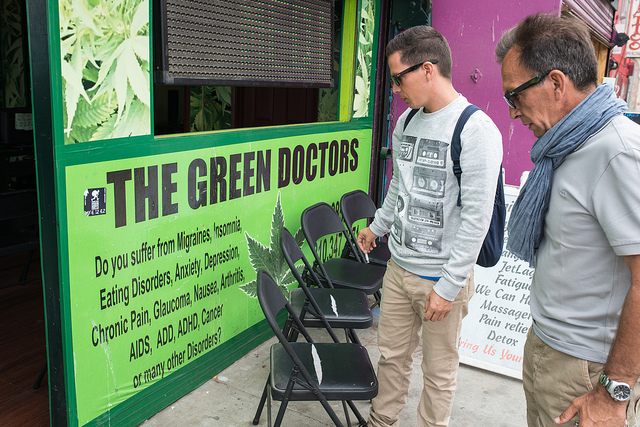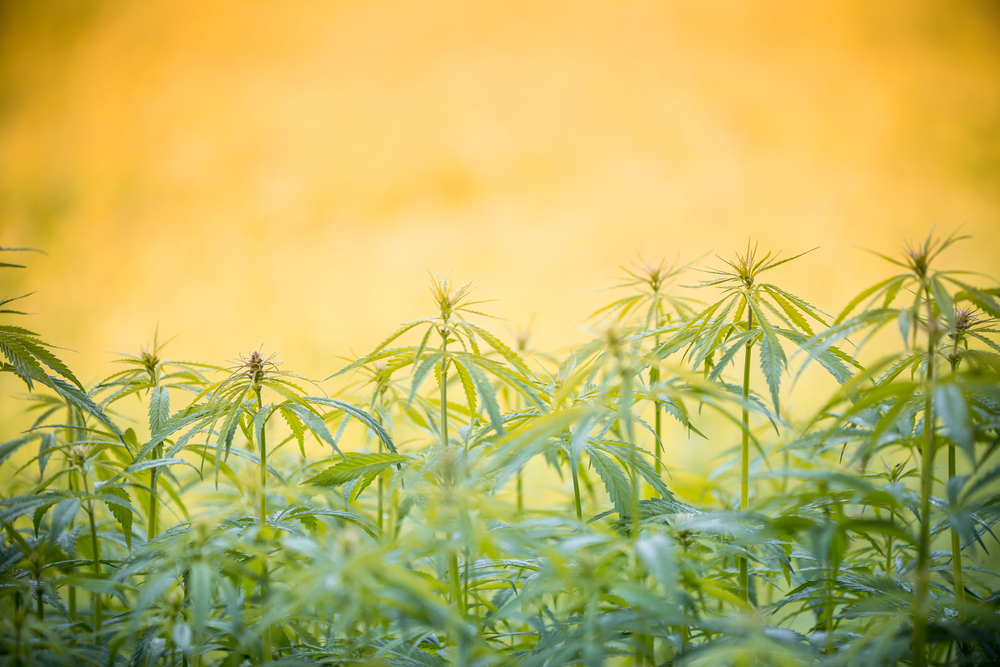
The news stories about cannabis have been coming thick and fast over recent weeks. There seems to be something of a sea change in relation to decriminalising and legalising the drug in some US states and Latin American countries. As always, when legal changes such as these are passed there are concerned voices: “But what about the children!?”
Today, the Lancet Psychiatry published a relevant meta-analysis of individual patient data and the press release contains some attention-grabbing numbers:
Individuals who are daily users of cannabis before age 17 were over 60% less likely to complete high school or obtain a degree compared to those who have never used the drug.
Daily users of cannabis during adolescence were 7 times more likely to attempt suicide, have an 18 times greater chance of cannabis dependence, and are 8 times as likely to use other illicit drugs in later life.
Well, reading this got our pointy ears a-twitchin’, so we donned our elf hats and started perusing the paper to see if the actual evidence backs up these headline-friendly statistics.

In England in 2012, 4% of 11-15 year olds reported cannabis use in the past month.
Methods
The authors combined data from three long-running longitudinal studies from down-under:
- The Australian Temperament Project (ATP)
- The Christchurch Health and Development Study (CHDS)
- The Victorian Adolescent Health Cohort Study (VAHCS)
The total number of participants included in the analysis varied, depending on the outcome (2,537 to 3,765 participants).
Seven outcomes were investigated including educational attainment, substance use, mental health, and welfare dependence.
All 3 studies investigated cannabis use in young people over many years and looked at specific outcomes up to the age of 30 years old. Drug use and outcomes were not measured consistently from one study to the next, but the authors say that: “sufficient commonalities existed to enable integration of data and development of measures that were consistent across studies”.
The different studies did not always use consistent outcome measures, so the authors developed a series of dichotomous measures, which enabled them to pool the data into an integrated dataset that combined participant-level data from the different cohorts.
They used statistical techniques to investigate the sensitivity of the results to the influence of potential confounding variables and the potential for selection bias in the study cohorts.

Legislative changes in many countries have made high street access to cannabis a real possibility for some. Photo: WiLPrZ CC BY-SA 2.0
Results
The paper reports “clear and consistent associations and dose-response relations between the frequency of adolescent cannabis use and all adverse young adult outcomes”.
Compared with people who had never used cannabis, daily users before age 17 years had:
- Clear reductions in the odds of:
- High-school completion (adjusted odds ratio 0·37, 95% CI 0·20 to 0·66)
- Degree attainment (0·38, 0·22 to 0·66)
- Substantially increased odds of later:
- Cannabis dependence (17·95, 9·44 to 34·12)
- Use of other illicit drugs (7·80, 4·46 to 13·63)
- Suicide attempt (6·83, 2·04 to 22·90)
Conclusions
The authors concluded:
Prevention or delay of cannabis use in adolescence is likely to have broad health and social benefits. Efforts to reform cannabis legislation should be carefully assessed to ensure they reduce adolescent cannabis use and prevent potentially adverse developmental effects.
Writing in a linked Comment, Merete Nordentoft, Professor of Psychiatry at the University of Copenhagen in Denmark said:
The convincing results presented by Silins and colleagues are very valuable and highly appropriate at a time when several American states and countries in Latin America and Europe have decriminalised or legalised cannabis and allow unrestricted marketing of various formulations of the drug. Such changes in legislation will probably be followed by decreased prices and increased use, which will lead to more young people having difficulties with school completion and social and personal maturation, and will increase the risk of psychosis.

Regular cannabis use before age 17 is linked with lower high school completion and degree attainment.
Limitations
- This is not an interventional study. The conclusion that “prevention or delay of cannabis use in adolescence is likely to have broad health and social benefits” might be a plausible hypothesis that is worth testing, but it’s not evidence-based advice that can be made based on these observational studies.
- This is not a systematic review. It’s a meta-analysis of just 3 studies, which means that there are likely to be many more studies out there, which may bring back a different set of results.
- It appears that the reviewers didn’t define the measures of exposure and outcome in advance in a prospective protocol, but rather developed them after looking at the data. This might lead to data dredging and a greater risk of “false positive” associations turning up in the data by chance.
- There was high variability on many reported outcomes (see table 1 in the paper). This variability implies heterogeneity across the 3 included studies.
- For the outcomes of welfare dependency and depression, statistical significance was heavily dependent on one study.
- On the other hand, there was clear evidence of a dose-response effect with respect to impact on educational attainment, seen consistently across all three.
- There are wide confidence intervals around some of the results (e.g. suicide attempts), which obviously makes the findings less certain.
- Loss to follow-up is high in places.
- The 3 pooled studies are different in the way they consider covariates and there are lots of differences in terms of confounding variables.
Commentary
There is a significant body of existing research which shows that cannabis use is associated with a variety of negative outcomes, e.g. psychotic experiences at age 18. This new study adds to our knowledge, but what can we really take away?
No-one will be surprised to hear that young people who use cannabis are more likely to become dependent on cannabis or use other illicit drugs, than individuals who do not use cannabis. That’s hardly earth-shattering evidence that should be filling press releases.
The findings relating to suicide attempts are statistically significant, but based on small numbers of participants from just 2 of the studies, so these results should be cautiously reported.
The most compelling evidence of a dose-response relationship is for cannabis use and educational outcomes. This is our main take-home message from the research: regular cannabis use before age 17 is linked with lower high school completion and degree attainment.
We look forward to seeing further studies published in this area, which establish stronger links between cannabis use and the full range of health and social outcomes. This meta-analysis is an important step forward but more evidence is needed to show that, for some outcomes, cannabis use is not simply a marker for having a tough childhood.
Links
Silins E, Horwood LJ, Patton GC, Fergusson DM, Olsson CA, Hutchinson DM, Spry E, Toumbourou JW, Degenhardt L, Swift W, Coffey C, Tait RJ, Letcher P, Copeland J, Mattick RP, for the Cannabis Cohorts Research Consortium. Young adult sequelae of adolescent cannabis use: an integrative analysis. Lancet Psychiatry 2014; 1: 286–93. [Abstract]
Henderson H, Nass L, Payne C, Phelps A, Ryley A. Smoking, drinking and drug use among young people in England in 2012. Health and Social Care Information Centre, 2013.


@Mental_Elf personal experience of this, skunk caused mayhem in 15 yr old brain, took a long time to recover
@Mental_Elf a psychiatrist I spoke to said readmissions in some areas cld be reduced by 80% if cannabis taken out of equation
@Mental_Elf unfortunately as with many studies examining #cannabis they do not differentiate by type of cannabis, could influence outcomes
RT @Mental_Elf: Cannabis use in young people linked with lower high school completion and degree attainment http://t.co/Zvpzmalgnz
Cannabis use in young people linked with lower high school completion and degree attainment: André Tomlin and … http://t.co/Nj40XogbLF
@Mental_Elf not seen paper yet but you question their search & recovery of relevant papers – is it not thorough or detailed in paper?
@Mental_Elf interesting. Curious abt comparison w\other drugs, including EtOH. They control for income? Didn’t see it mentioned specifically
Today @andretomlin & @DBadenoch report on a new meta-analysis in @LancetPsych on cannabis use in young people http://t.co/S784oP7vuz
@Mental_Elf @andretomlin @DBadenoch What are the probabilities of dropping out of school with and without using cannabis?
@Mental_Elf @andretomlin @DBadenoch And do they discuss any of this? https://t.co/7puJC743D7 (can’t access the paper right now :( )
@inductivestep @Mental_Elf @andretomlin. Thanks for the mention Andy. My reply is more than 140 chars so it’s here: http://t.co/4v2ZumJxkH
@DBadenoch @Mental_Elf @andretomlin Thanks very much!
Claire Adams liked this on Facebook.
The Mental Elf liked this on Facebook.
Interesting review of research linking cannabis use to suicide and reduction in education attainment by @Mental_Elf http://t.co/WXcRApaPmT
@edmsykes @American__Green @Mental_Elf anyone have a ratio of alcohol depression rates? Alcohol is categorized as a depressant.
@edmsykes @American__Green @Mental_Elf the fact remains that their are zero deaths annually for canabis! It would be the safest medicine!
RT @Mental_Elf: New meta-analysis links cannabis use in children to poor educational achievement, illicit drug use & suicide http://t.co/S7…
Looking at how this research is being reported in the media today, one of my concerns is the quote about cannabis and suicide:
“Daily users of cannabis during adolescence were 7 times more likely to attempt suicide”
This is getting picked up by various sources and presented as the sub-headline, e.g.
http://www.theguardian.com/society/2014/sep/10/teenagers-who-use-cannabis-every-day-60-less-likely-to-finish-school
http://www.irishtimes.com/news/health/teen-cannabis-users-less-likely-to-finish-school-get-a-degree-1.1923398
The problem is that the evidence in the study for that outcome (suicide attempts) is quite weak. The overall numbers of participants is low and the confidence interval around the result is wide. We are told that daily users of cannabis <17 y/o are 7 times more likely to attempt suicide, but the figure may be as low as 2 or as high as 23.
The press release made a big thing out of this result and the media have picked up on it because it's an attention grabbing statement. Unfortunately the evidence really isn't that strong to support it.
It's a shame that this misinformation is going out on today of all days: http://www.iasp.info/wspd/
Tx @edmsykes Most pick up on link btwn cannabis & suicide, which is very weak in this study, see my comment: http://t.co/4ISv6qjOgG
@Mental_Elf @edmsykes yes, the ‘suicide’ confidence intervals overlap substantially in all grps including highest & lowest cannabis users
@Mental_Elf @edmsykes At least for adjusted odds
@Keith_Laws @Mental_Elf Interesting to note. The suicide aspect wasn’t heavily mentioned in the comments we received: http://t.co/O3AyvLxYoV
Cannabis use in young people linked with lower high school completion and degree attainment http://t.co/VAWmJpAVXd via @feedly
@Mental_Elf The only really striking thing about those data are that those who use cannabis are more likely to become cannabis dependent
@Mental_Elf Which is not a great shock
Cannabis use in young people http://t.co/4NICbK3vAX
Behind the headlines: @Mental_Elf looks at links between cannabis use and ed attainment
http://t.co/Ux4glKR834
Read our critical appraisal of the @LancetPsych adolescent #cannabis review, out today http://t.co/S784oP7vuz
@Mental_Elf what kind of cannabis was used though? Vastly different effects frm various types but all gets lumped together in ‘studies’.
A2 students, read this analysis of research into use of cannabis in adolescence: http://t.co/ik3d73XVEg“
Any future cannabis legislation will have to take into account it’s potentially deleterious effect on under 18s http://t.co/P3IPS4oSTO
Mental Elf: Cannabis use in young people linked with lower high school completion and degree attainment http://t.co/WsDFGBfrV2
In England in 2012, 4% of 11-15 year olds reported cannabis use in the past month. Surprising? http://t.co/S784oP7vuz
Hi @CannaBoss We’ve blogged about your new @LancetPsych cannabis paper. Interested in hearing what you think http://t.co/S784oP7vuz
Does cannabis use in childhood lead to health and social problems in later life? New research says yes: http://t.co/S784oP7vuz
@Mental_Elf does alchool? @mcostaenf
RT @Mental_Elf: Regular cannabis use before age 17 is linked with lower high school completion & degree attainment http://t.co/S784oP7vuz
Cannabis use in young people linked with lower high school completion and degree attainment http://t.co/V7zxUECcZU via @sharethis
Hi @sameerjauhar Interested in hearing what you think of our cannabis blog http://t.co/S784oP7vuz
“@Mental_Elf cannabis blog http://t.co/MA5I5iTW5h” v clr, main pt re school achivnt, and dose response, I worry abt potency fx on crnt gen
Young people (<17y/o) who use cannabis daily are 60% less likely to complete high school or obtain a degree http://t.co/S784oP7vuz
@Mental_Elf correlation does not impute causality. It’s a complex issue.
From @Mental_Elf Cannabis use in teenagers associated with less educational success but could be unmeasured confounds http://t.co/UMRmzHESoZ
Cannabis use in teenagers associated with less educational success but could be unmeasured confounds http://t.co/p1rEZkUGin“@headspace_aus
Don’t miss: Cannabis use in young people linked with lower high school completion and degree attainment http://t.co/S784oP7vuz #EBP
@Mental_Elf It’s a shame. I used to RT your posts – now I’m blocking you. Perhaps one day you will learn how to see past so-called research.
Should we be decriminalising cannabis when new evidence shows clear links with poor educational outcomes? http://t.co/S784oP7vuz
@Mental_Elf #GoodQuestion :)
@Mental_Elf @WC4Cannabis No, we should be legalising and regulating it, as prohibition allows ease of access by youth.,,,,,
@Mental_Elf @WC4Cannabis Education is key to reduce youth use. And its far easier to educate youth, when you dont lie to them about dangers
“Cannabis use in young people linked with lower high school completion and degree attainment” http://t.co/EifNQUa0Ju
The most significant thing about this study is that it comes from the notorious, discredited University of New South Wales (UNSW), home to the National Cannabis Prevention and Information Centre (NCPIC).
As its name reveals, the NCPIC is a prohibitionist propaganda organisation. it routinely cherry picks, distorts and misrepresents research on cannabis. it also works in an underhand and dishonest way to sow its misinformation covertly where it can cause most fear.
Earlier this year, two doctors associated with the NCPIC published an article in the BMJ ‘Should Doctors Prescribe Cannabinoids’ which was an extraordinary sabotage effort against the exciting and fast developing science of cannabinoid medicine. It contained a great deal of extraordinary misinformation, for instance using data on recreational use as an argument against medicinal. Most significant of all was the failure of the doctors concerned to declare their association with the NCPIC.
Nobody is suggesting that heavy use of cannabis by young people does not bear risks. Of course it does but these are self evident. The repeated scaremongering and disproportionate emphasis from the NCPIC’s so-called science amounts in fact to crass and deceptive propaganda.
It is a disgrace that a university should permits its name to be used by such a propaganda organisation. Any group that includes the word ‘prevention’ in its name is clearly engaged in science.
Young people who may be at modest risk from cannabis and those who can benefit enormously from the therapeutic use of the plant deserve far better than this dishonest, misleading propaganda dressed up as impartial science.
All this states is that they are less likely to COMPLETE HIGH SCHOOL or GET A DEGREE, now lets think about that
I have never seen a study like this account for whether *getting suspended or expelled because you smoke pot* is part of the problem. Obviously, if this is what’s going on, it’s not necessarily the marijuana that is lowering school completion, but the policies towards use.
@propensity @ClarkeMicah You may read “Limitations” and “Conclusions” http://t.co/bp5HKG3vHJ
RT @TomCLloyd: Don’t panic! “more evidence is needed to show that..cannabis use is not simply a marker for having a tough childhood” http:/…
@ClarkeMicah @thepoisongarden @propensity http://t.co/7TB0hcyY96
Teen pot use linked to lower high school completion and degree attainment — http://t.co/MSnXMX1Pia
[…] A. Cannabis use in young people linked with lower high school completion and degree attainment. The Mental Elf, 10 September […]